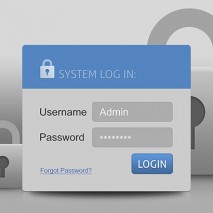
What is it?
A password is a string of characters, or more commonly a word, required to confirm a user’s authentication or identity. It allows users to gain access to a specific resource that others without the password cannot access. The use of passwords dates back thousands of years, when sentries would require a password from those wishing to enter a town or military camp. Today, they are frequently used online, for things such as email, online banking, and online shopping accounts. A password does not necessarily have to be a word; it could be a random set of letters or numbers, which can make it harder for other people to guess and steal.
How to
Changing your password every so often is a great way to ensure your accounts remain safe and private. There are many different ways to reset your password, and it often depends on what the website’s policy is. Yahoo, for example, has three different methods: you can reset your password using an alternate email address, where they will email your current password to that email. You can reset your password using your mobile phone number (if you have already synched it to your account previously). Yahoo will then text you your new password. Lastly, you can use a secret question, which is a common method. You set this question when making your account, and by putting in the answer that matches with your original answer, you will be able to choose a new password. Some sites may request that you answer multiple questions to ensure user identity. Make sure you choose questions that are not obvious to others but at the same time easy for you to answer.
Why do it?
One of the best ways to ensure your personal privacy and online safety is by using different passwords for different accounts. This way if you lose or forgot one password, you do not lose access to all your accounts. Likewise, if a hacker or someone else steals your password, they do not gain access to all of your accounts. Resetting your password is also a great way to ensure you do not forget your password. Some people may have made their email account 10 years ago, and may be more likely to forget their password if it was a reference to something that is no longer relevant in that person’s life. Lastly, changing your passwords every so often makes it much more difficult for a person to steal your password.
Risks
If you do decide to reset your password, make sure you choose one that you can easily remember. While having separate passwords for things such as online banking, email, and other personal items, is beneficial to safety, it can be difficult to keep track of each password.
There is nothing worse than not being able to sign in to an important account because you cannot remember your password. At the same time, make sure your password is personal enough that no one will be able to guess it. Avoid using things such as your birthday or pet’s name, as this information can be easily gathered. Using a simple word (such as apple) but incorporating a random set of numbers can help protect your password, while at the same time making it easy to remember.







